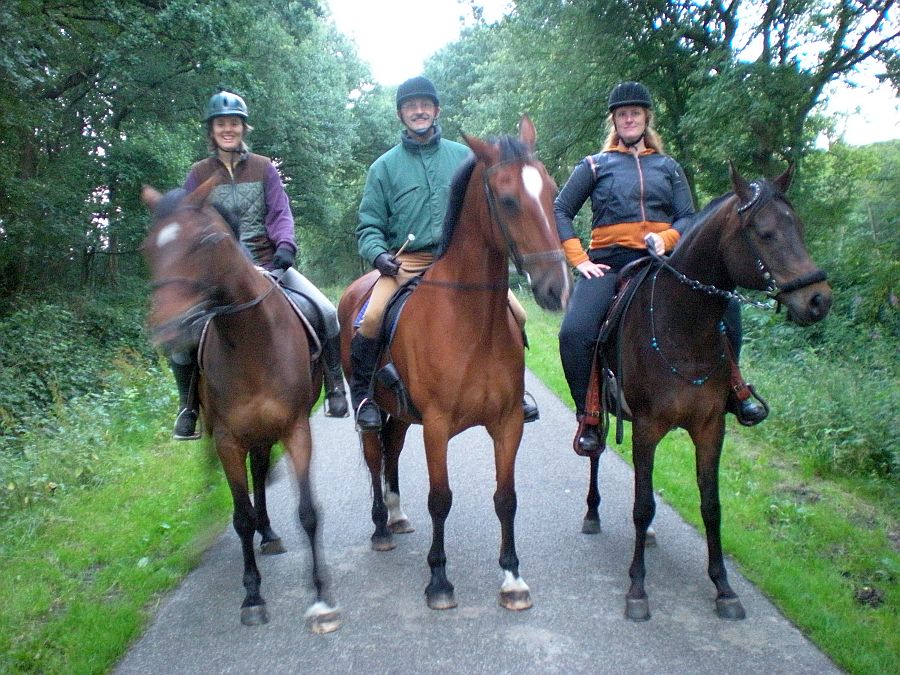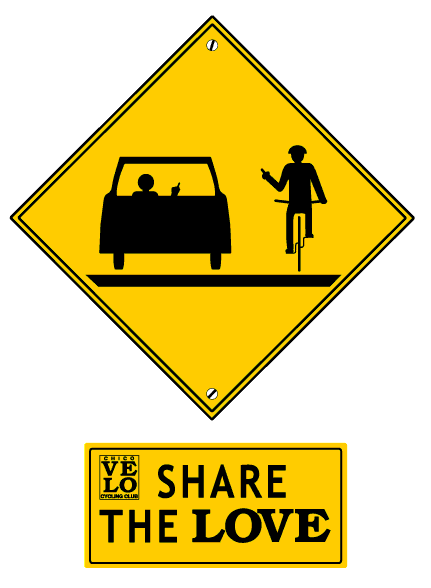It seemed like a no-brainer to pass this law. However, reportedly according to one legislator, "cyclists are often rule breakers who don't deserve any additional protection". Therefore, according to him, if you run a stop sign, you deserve to be hit by a car. It doesn't pass the smell test, but it did create a lot of dialog on the importance of riding within the law. Let's look at a couple of reasons why all this talk was probably a waste of time.
First of all this discussion occurs at least once a year on cycling list servers everywhere. Usually it is a result of a cyclist getting hit by a vehicle. Each time this topic comes up, cyclists are upset and through opinions, ideas, they want to make T-shirts and bumper stickers, call their congressman and get on their high horse and tell the world to respect cyclist because we will save the planet. Then all is forgotten until the incident sparks the same conversation.
Let's look at the law itself. Are you any safer if a car gives you 3 feet versus 2 feet? Since most if not all cyclists are also motorists, can you tell the difference between 2 feet and 3 feet when passing something on the road traveling at 25-65 miles an hour? Be honest, and the answer is probably no. Here's another question to ask, how many non-cyclists know that they are even supposed to give cyclists 2 feet? If you ask most people, I bet the answer you would get would be something along the line of passing "safely" or with "due regard". Most people would not even know that there is a specific number. So is it really safer to pass a law that no one knows exist anyway?
Here is my suggestion on how to make cycling on the open roads safer: Don't ride in a manner that makes people want to hit you. It is very simple and free. Here are some examples.
Group rides could present problems. On any given Weekend, large groups of 30 or more can be found all over the country and city roads of Virginia Beach. Most of these groups will ride 2 or 3 (maybe more) abreast. When motorists, trying to get home or to the store attempt to pass these large groups, they may be forced to put themselves or others in danger by using excessive speed and traveling down the wrong lane. Many cyclists, though motorists themselves, cannot understand why these drivers get so upset at them. I have heard riders say things along the line of "what is so important that they can't wait behind us", or "we have just as much right to the road as they do". We may have right to the road, but "Share the Road" goes both ways. Plus, we should never presume we know the importance of someone's activities.
What if you came across a group of horseback riders on the road while you were in your car? Would you be comfortable passing them? Would you be tolerant of them slowing you down and disturbing your day? Be honest with yourself, everyone is in a hurry at times.
Ride in smaller groups. Limit the number to 7 or 8 riders and always be willing to slow down, single file or do whatever it takes to ensure the cars can safely pass you. Look and act like you belong on the roads.
The other day, a friend of mine who is not a cyclist was leaving his street on one of those county roads. The speed limit on this road is 55 mph and is pretty narrow. There was a car coming down the road to his left. He was stopped at a stop sign when he noticed the car was going much slower than 55 mph and had her blinker on to turn right onto the street he was leaving. He pulled out and quickly realized that she was not turning and she had to slam on her brakes to avoid hitting my friend. He felt really bad and felt even worse when he went around her and notice a cyclist lying on the ground. The cyclist was motor pacing off of this vehicle. The driver was probably doing about 25 to 30 mph and the cyclist was following so close that he couldn't be seen around the car. The blinker that my friend thought he saw was the hazards.
He stopped to check on the rider. He felt really bad and apologized. He said he was really sorry and he thought her blinker was on and that she was turning. The cyclist responded with "That was her hazards you asshole." Needless to say my friend no longer felt bad. The cyclist was being careless and did not accept the responsibility for his own decisions. I'm not saying he should not motor pace, but he needs to understand that he doesn't own the road and that other motorists may dictate what his pacer needs to do, and he needs to be able to react accordingly, or not pace at all.
Remember, just be nice and don't make drivers want to run us off the road.




No comments:
Post a Comment